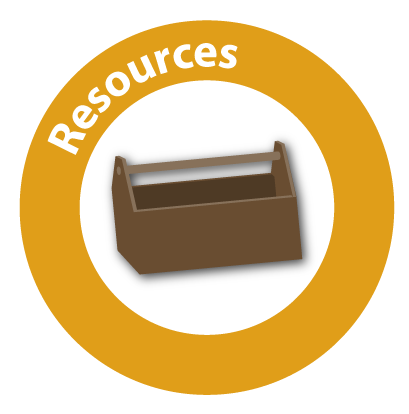 |
| | Resources and Frequently Asked QuestionsFind resources to help your family or get answers to frequently asked questions. Resources
OrganizationsOhio Coalition for the Education of Children with Disabilities (OCECD)In addition to offering resources for anyone in the state, OCECD provides free, local parent mentors who can help families to understand special education. For contact information, see:
The Arc of The United StatesThe Arc advocates for people with intellectual and developmental disabilities (IDD) in all areas of life - from employment to education. Families can learn more about advocacy at the national level or contact state branch for support. Frequently Asked Questions▸ How should I share a concern with my child's school?When asking for help from your child's school, it's best to write a formal letter. Delivering a letter helps both you and the school to keep track of when you asked for help and what kind of help you requested. Disability Rights Ohio has tips for writing letters and free templates on their website. You can also find templates from the Ohio Coalition for the Education of Children with Disabilities (OCECD). Families have more success communicating with school when they are organized, track data, problem solve and work collaboratively with educators. To learn tips on how to do this, see our guide, How to Communicate Effectively with School, or listen to this podcast. ▸ I think my child might need special education services. How do I get started?The Connecting for Kids Family Guide to Special Education explains how children get referred for special education, what happens during an evaluation and how to participate in your child's Individualized Education Plan (IEP) meeting. ▸ What is the difference between a medical diagnosis and an "academic diagnosis?"A medical diagnosis is made by a licensed medical or mental health provider. This type of diagnosis can be useful when seeking reimbursement for medical or therapeutic services (for example, payment for speech therapy, medication management, etc.). A medical diagnosis can be used as the basis for a 504 plan but it does not guarantee an IEP. An "academic diagnosis" is an identification made by a team at a child's school at the conclusion of the child's multifactored educational assessment (MFE). Based on the findings in the MFE, the school team determines if the child is eligible for special education services and under what category that eligibility falls. The eligibility category is sometimes known as the child's "academic diagnosis," even though it is not actually a diagnosis. For more on the evaluation process, see the Family Guide to Special Education. For more on the difference between medical diagnosis and educational eligibility, see this article from Understood. ▸ What is the difference between an IEP and a 540 Plan?Both IEPs and 504 Plans help students with disabilities in the classroom, but there are differences between the two. This side-by-side comparison from Understood.org can help you to understand what both documents do and which one might be better for your child. ▸ Where can I learn more about IEP goals, accommodations and modifications?Our how-to guide covers the steps you need to prepare for an IEP meeting for your child, including resources on IEP goals, accommodations and modifications. ▸ How do I get extended school year (ESY) for my child?Children with IEPs may be eligible for special education services during summer break. Not all students with IEPs qualify for extended school year (ESY). You can learn more about what ESY is and whether your child might qualify in this article from Understood. This guide from Disability Rights Ohio talks about the things families should know and do when requesting ESY. The Ohio Coalition for the Education of Children with Disabilities (OCECD) also has letter template to help families request ESY. If you child is not eligible for ESY this year, it's a good idea to document academics over the summer and into fall. This way, you can discuss ESY at your next IEP meeting. For tips on keeping documentation, listen to our podcast, "How to Communicate Effectively with School," or explore our school communication how-to-guide. ▸ I need help talking to my child's school. Who can I ask?
Sometimes families have problems communicating with school or need extra help to solve problems. The Resource Room section in our Family Guide to Special Education has a section where you can learn about free and paid experts who can help.
|
Back to School Concerns Guide
